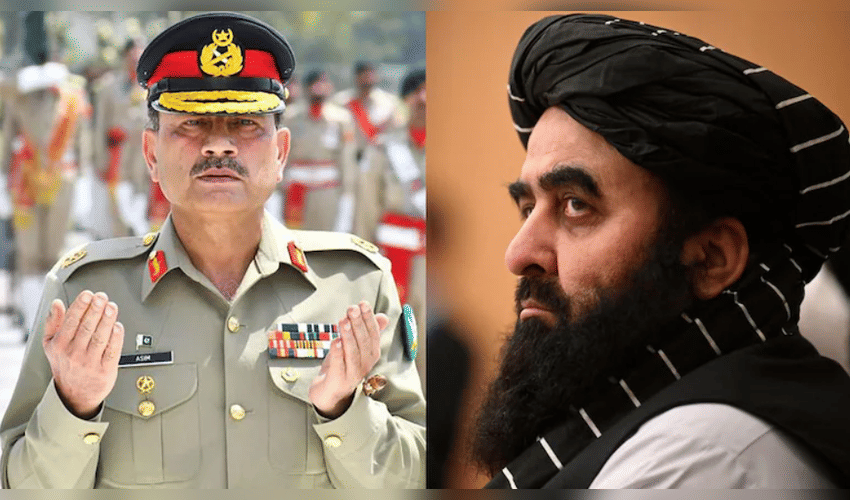Asia In News
Taliban Foreign Minister Strong Message from India to Pakistan on Ending Terrorism

The recent visit of Taliban Foreign Minister Amir Khan Muttaqi to India brought a strong and clear message on terrorism, especially directed towards Pakistan. Speaking from Indian soil, Muttaqi asserted that Afghanistan has successfully eliminated all terrorist groups operating within its borders over the past four years. He emphasized that no faction controls any part of Afghanistan anymore, marking a significant change since the Taliban took over in 2021. This message was coupled with a pointed invitation to Pakistan and other neighboring countries to follow Afghanistan’s example in combating terrorism to foster regional peace.
Muttaqi’s statements were delivered amid ongoing tensions between Afghanistan and Pakistan, with Islamabad recently conducting cross-border strikes against militant camps in Afghan territory. Pakistan claims its actions are in response to terrorist groups using Afghan land to launch attacks, particularly targeting Tehreek-e-Taliban Pakistan (TTP). Muttaqi firmly condemned these cross-border military operations, warning Pakistan not to test the resilience and courage of the Afghan people, recalling historical lessons when foreign powers tried to exploit Afghanistan.
The visit also coincided with an important diplomatic milestone. India announced the reopening and upgrading of its Kabul mission to full embassy status, signaling a renewed commitment to deepen bilateral ties with Afghanistan. External Affairs Minister S. Jaishankar and Muttaqi emphasized the importance of mutual cooperation against terrorism to ensure regional stability. Both leaders acknowledged that the threat of cross-border terrorism endangers their shared goals of growth and prosperity, underscoring the need for coordinated action against all forms of terrorism without singling out any country by name.
Muttaqi extended an invitation for Indian investment in Afghanistan's mining sector and highlighted ongoing collaborations in humanitarian aid, such as India's assistance in rebuilding earthquake-affected regions. He praised India’s prompt response to recent crises and emphasized people-to-people and educational ties, including expanded visa provisions for Afghan students and professionals. This expanding partnership reflects Afghanistan’s desire for strong diplomatic and economic relations based on respect and cooperation.
This development comes at a crucial time when Afghanistan seeks to assert its independence and stability after decades of conflict. The Taliban government’s declaration that it has eradicated terror sanctuaries within its borders aims to challenge the narrative of Afghanistan being a safe haven for militant groups. While skepticism remains internationally, these statements and diplomatic gestures indicate efforts by the Taliban to present Afghanistan as a cooperative regional player committed to peace and development.
The Taliban Minister’s assertive message from India to Pakistan on terrorism underscores a pivotal shift in Afghanistan’s regional stance. It conveys both a warning against destabilizing actions and a call for collective responsibility to address terrorism. The strengthening Indo-Afghan ties further highlight the evolving geopolitical dynamics in South Asia, where collaboration against terror threats and economic partnerships are increasingly intertwined.



